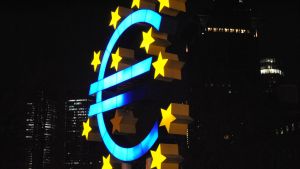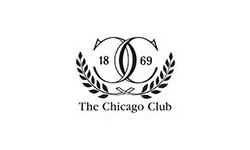Europe: Destined for Conflict?
About This Event
Event Summary by Richard C. Longworth
The problems in Europe may look mostly economic, dealing with the future of the euro and Greek debt. But George Friedman told the Chicago Council Tuesday evening that, underneath, historical, and cultural demons are stirring that could destabilize the European Union and Europe itself.
In the last century, Europe fought 31 years of intermittent war, from 1914 to the end of World War II, with 100 million dead in battles, genocides, famines, and the Holocaust, Friedman said. Under American pressure to unite, it formed the European communities and then, in 1992, the European Union, with its promise of post-national peace and prosperity.
“But is it really over in Europe?” Friedman said. “Is the slaughter that began in 1914—is it over? Has it changed? Will the EU survive? And, if it doesn’t, what comes next?”
European instability threatens global instability, he warned. Europe is a small continent of 52 sovereign states, “all with bad memories.” Their frontiers may be open, but this means that “you can drive for three hours and be in four or five countries that bitterly despise each other because of things that happened centuries ago.”
George Friedman’s Europe is not Rick Steves’ Europe. Friedman is a child of the European darkness, born in Hungary in 1949 and, only six months old, smuggled by his parents across the Danube in a flight from Communism that ended in the United States.
Today, he is founder and chairman of Stratfor, the Texas-based geopolitical forecasting and intelligence corporation. Immensely well-connected and well-informed, he is a much-quoted authority on intelligence and security issues. He also is a prolific author of many books, including his latest, Flashpoints: The Emerging Crisis in Europe.
Friedman is concerned with Ukraine, Vladimir Putin’s aggression and the American response to it. But most of his speech dealt with the crisis within the European Union. In this drama, the central player is not Russia but Germany.
Friedman sees a Europe divided not between east and west but geographically by the Alps and the Danube, with a northern Europe dominated by a prosperous Germany and a southern Europe that is already in depression, with unemployment rates of 25 percent or more.
Friedman said the problem is less Greek debt that Germany’s manipulation and domination of the euro to create a continental market for German exports. Germany exports half its national product, he said, and its own stability depends on this market. This means endless loans—including loans to countries that, like Greece, can’t repay them—to buy German goods. The result: austerity, depression, and possible national bankruptcies.
Who’s right, Germany or Greece? Friedman indicated he blamed Germany but, basically, he said, “the point is that they can’t live with each other.” By this, he meant the two parts of Europe and, within them, the history-driven forces of Europe that the EU thought its Maastricht Treaty, with its promise of peace and prosperity, had settled in 1992.
This worked in good times, he said. “But what if prosperity takes a walk? What then happens to peace?"
Already nationalist and populist parties are rising, on the left in Greece, on the right in France and other countries, Friedman said. Secessionist movements grow in Spain, Romania and other countries, threatening civil wars. There is “a massive delegitimation of main-stream parties,” coupled with a “rise of hatred” among “a massive, intelligent and embittered class” of Europeans who sees unemployment and impoverishment and realize that “this isn’t temporary—this is my life.”
"This is the dangerous point,” Friedman said. It’s all too reminiscent of the 1930s and Germany, “when a little man with a mustache appeared.”
Once again, he said, Germany is “Europe’s basic flaw,” a country that is “economically powerfully and geopolitically fragile.” Split off from its EU ties, it could once again look east to revive the age-old fear of “German capital and technology plus Russian resources and manpower”—an alliance that the EU was supposed to bury forever.
The EU itself may be fatally flawed, he said. If the American Declaration is a “moral document,” promising life, liberty and the pursuit of happiness, the Maastricht Treaty is a material promise, creating a union that “is a geographical statement, not a moral statement or a statement of truth.” Old “national animosities” still exist, he said, with the EU put on top to create a false union in which “nobody shares a fate.”
“Europe conquered the world” in the colonial era, Friedman said, “but it never conquered itself.” It is left now with historical fears and hatreds, an unworkable structure without the coherence to solve problems when they arise, as now.
Europe’s problem, he said, “is the deep contradiction between various parts of Europe. It’s an impossible situation that can’t be solved within the paradigm they have.”
Richard C. Longworth is a distinguished fellow at The Chicago Council on Global Affairs. Read more of his program summaries and recent publications or follow his blog.

